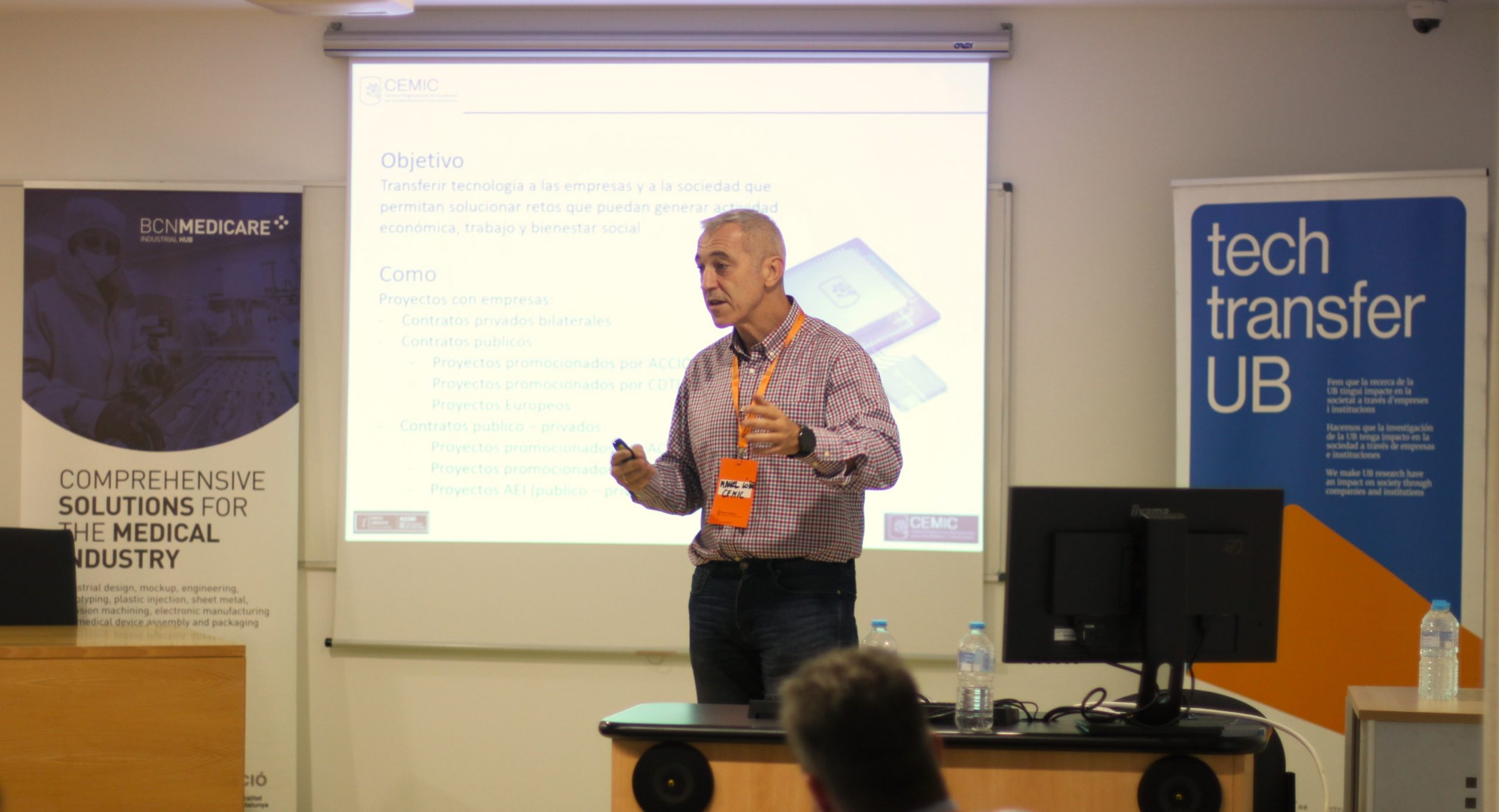
The UB brings together research groups and companies from the HUB BCN Medicare to promote technology transfer in the medical field.
The University of Barcelona (UB) hosted a technical knowledge transfer event between the research groups of the Center for Microsystems Engineering for Instrumentation and Communications (CEMIC) and the Center for Design and Optimization of Processes and Materials (DIOPMA), along with companies from the HUB BCN Medicare.
The event was held at the UB Faculty of Physics and brought together researchers and professionals from the sector to share advances in technologies applicable to the development of medical devices.
The conference, organized by the Bosch i Gimpera Foundation —the UB’s knowledge transfer office— and the HUB BCN Medicare, focused on strengthening the connection between research and industry to drive distinctive innovation in the medtech sector, fostering collaborations that accelerate the development of new technologies and enhance the competitiveness of the healthcare market.
During the event, the CEMIC and DIOPMA research groups presented the latest results of projects in microelectronics and nanoelectronics, microfluidics, and new materials, highlighting the potential of these technologies to transform the biomedical technology sector.
Salvador Mena, Head of the Technology and Knowledge Commercialization Area at the FBG, emphasized that the goal of the event was “to bring research results closer to potential applications. We have very innovative technologies stored away in a drawer —such as sensors, chips, etc. If we don’t showcase them, companies don’t know that these technologies exist or that we’ve reached this level of development.”
The participating companies —ANIMA, ELECTROLOMAS, INNOVAMED, INBROLL, and TOTAL PLANNING— presented their industrial capabilities, their coordination to provide a 360 (integrated) service, and examples of projects developed for major clients in the sector.
The event included a small showroom and concluded with an open networking space to encourage dialogue between research groups and companies.
This initiative opens the door to future collaborations and reinforces the UB’s commitment to innovation and knowledge transfer, positioning the university as a key player in the development of advanced medical solutions.

